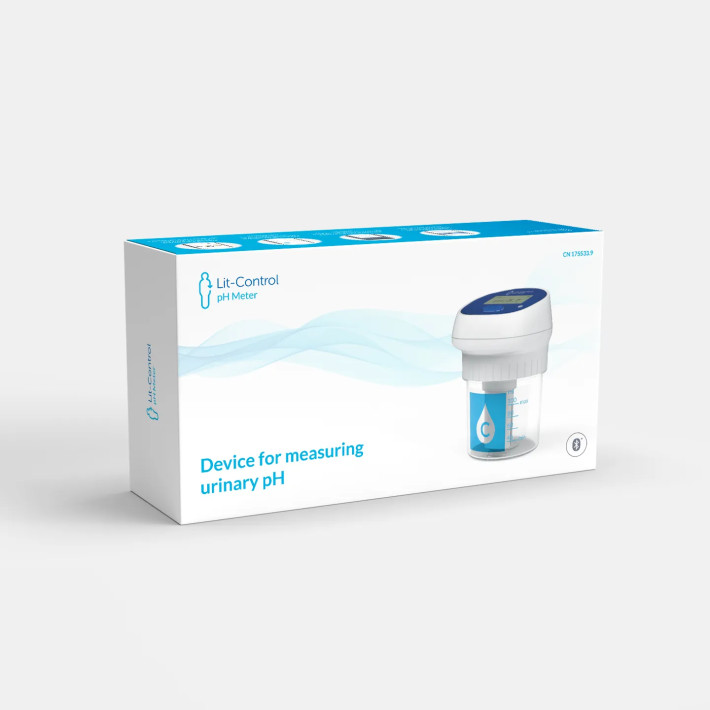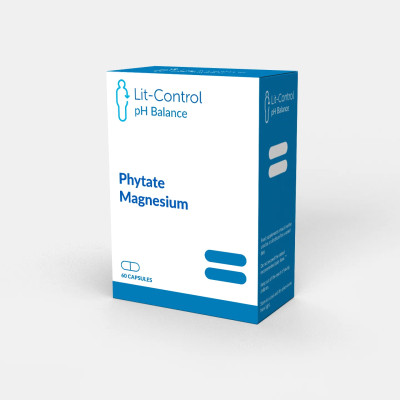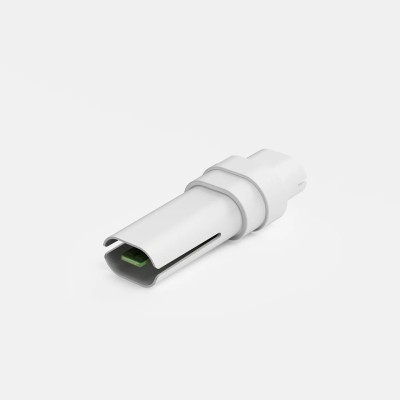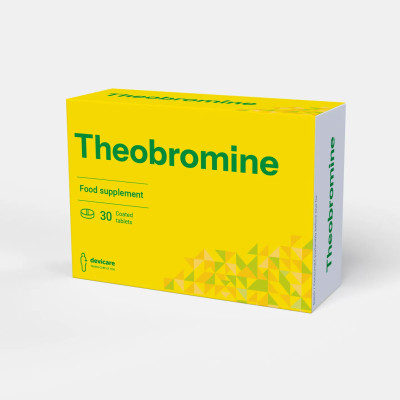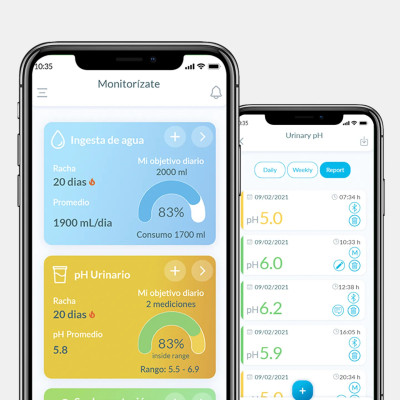-
Mensaje Vacaciones carrito
We're going on Christmas holidays!
From December 20 to January 6 (both inclusive) we will take a short break to recharge and celebrate Christmas with our loved ones.
Orders placed during this period will be processed as soon as possible.
Thank you for your patience and... Merry Christmas! - Healthcare professionals area
- Distributors area
-
Products
Lit-Control ® pH Balance39.99€Lit-Control ® pH Up39.99€Lit-Control ® pH Down39.99€Lit-Control ® pH Meter 2.0199.99€Lit-Control ® pH Buffer9.99€Lit-Control ® pH Sensor99.99€Theobromine24.99€
- Blog
- Our commitment
- Contact


La promoción se te aplicará automáticamente en el último paso del proceso de compra
Lit-Control ® pH Meter 2.0
A device that allows you to measure urinary pH at home in an accurate, easy, fast and safe way.
This new version 2.0 has been developed with:
- The latest Bluetooth technology so you can connect it with myLit-Control app and keep track of your measurements.
- A sensor that has a lifetime of 1 year, 3 times longer than the previous model.
- A more elegant and robust new design.
Knowing the degree of acidity of your urinary pH allows you to prevent pathologies such as renal lithiasis or urinary catheter incrustation.
Subscribe and save 5%
- ¡Always save 5%!
- Free periodic shipping.
- Without permanence.
-10%
-15%
Summer sales
- *5€ discount on orders over 50€, and 12€ discount on orders over 100€.
- *Promotion valid until 22 July or end of stock.
- *Offer cannot be combined.
We're going on Christmas holidays!
From December 20 to January 6 (both inclusive) we will take a short break to recharge and celebrate Christmas with our loved ones.
Orders placed during this period will be processed as soon as possible.
Thank you for your patience and... Merry Christmas!
Black Friday campaign
10€ off with a minimum purchase of 25€!
Promotion valid online, applicable only once per registered user. Not combinable with other offers.
Split your payment with Klarna, interest-free
Combine your product!
10% off
Buy & save
229.96€
206.96€
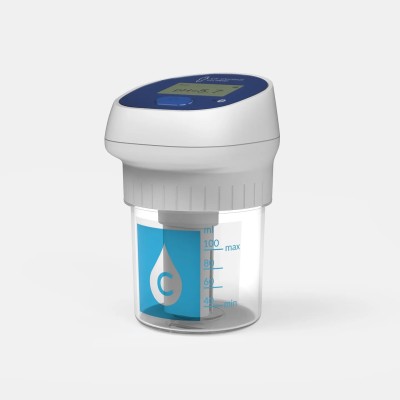
Lit-Control ® pH Meter 2.0
199.99€
179.99€
10% off
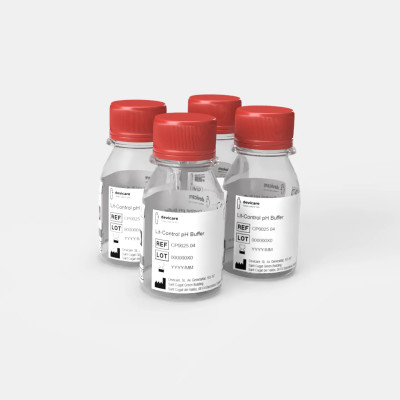
3 x
Lit-Control ® pH Buffer
29.97€
26.97€
10% off
Buy all 4 items:
229.96€
206.96€
Save:
23.00€
Buy all 4 items:
229.96€
206.96€
Save:
23.00€
Combine your product!
10% off
Buy & save
239.98€
215.98€

Lit-Control ® pH Meter 2.0
199.99€
179.99€
10% off
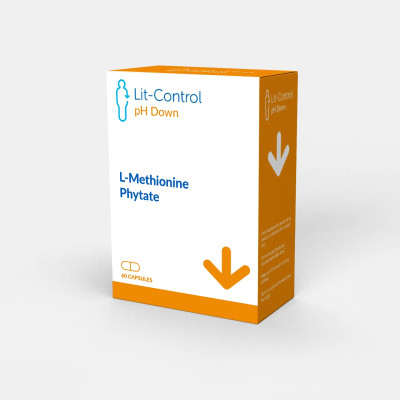
Lit-Control ® pH Down
39.99€
35.99€
10% off
Buy all 4 items:
239.98€
215.98€
Save:
24.00€
Buy all 4 items:
239.98€
215.98€
Save:
24.00€
Combine your product!
10% off
Buy & save
239.98€
215.98€

Lit-Control ® pH Meter 2.0
199.99€
179.99€
10% off

Lit-Control ® pH Up
39.99€
35.99€
10% off
Buy all 4 items:
239.98€
215.98€
Save:
24.00€
Buy all 4 items:
239.98€
215.98€
Save:
24.00€
Lit-Control® pH Meter is the only patented, clinically tested medical device on the market developed to measure urinary pH in patients with kidney stones, ureteral catheters or cystinuria.
Thanks to its innovative technology, it has an incredibly accurate urinary pH measurement, equivalent to a laboratory pH meter.
Urinary pH monitoring provides the security and peace of mind needed to determine the degree of acidity of urine at all times.
A high or too low pH is often associated with an increased risk of certain pathologies, such as, for example:
• Renal lithiasis or kidney stones.
• Calcifications of urinary catheters.
It is recommended to keep within a preventive pH range of 5.5 - 6.2, which places the degree of acidity of the urine in a range of non-formation of kidney stones.
CN: 175533.9
LT0255.00
199956 Items
What is urinary pH? 



Urinary pH is an indicator of the acidity or alkalinity of urine and provides information about the general state of health of our body. The average pH value is around 6.2. However, due to its oscillating behaviour, it can range from 4.5 to 8, depending largely on diet, waste products, metabolic disturbances, and other causes.
How is urinary pH currently monitored? 



Apart from the pH Meter, there are two options for monitoring urinary pH: by test strip or by laboratory pH meter. The former are widely questioned by the medical community for their low accuracy and fiability for clinical decision making; while the latter lacks the portability necessary for urinary pH measurement to be made in freshly voided urine, which has physiological value.
How can urinary pH affect kidney stone formation? 



• If crystals are present in the urine and the urinary pH is above 6.2, conditions are suitable for the formation of infectious or calcium phosphate or calcium phosphate-induced calcium oxalate stones.
• If crystals are present in the urine and the urinary pH is below 5.5, conditions are suitable for the formation of cystine or uric acid or uric acid-induced calcium oxalate stones.
• On certain occasions, or without pH alteration, the simple existence of crystals and the lack of physiological inhibitors of this crystallisation can favour the formation of kidney stones.
Correct control of urinary pH will reduce the risk of kidney stone formation.
How can urinary pH affect urinary catheters and urinary catheters? 



After placement of a urinary catheter or double j catheter, urinary tract infection tends to occur and can lead in most cases to alkaline urine.
If the infection persists due to, among other things, the presence of crystals in the urine and an alkaline pH, it may lead to calcification of the catheter or catheter, even causing blockage and in some cases making it difficult to remove.
You might also like
7 other products in the same category:
What our patients say
“Well, I am prone to kidney stones and these capsules help me with maintenance and along with drinking plenty of fluids I haven't had to go to the urologist anymore.”
Nuria
“I use it to prevent the formation of kidney stones.”
Alex
“I have been taking it for two months, my surgeon recommended it to me. I had 3 operations when I was 38 years old and since I've been taking it I haven't suffered any more cramps or swelling and as for the effect I urinate more frequently and better. I had my stones removed by lithotripsy, but they don't seem to form anymore.”
Yohanna
"Since I started using your product, the discomfort I’d been dealing with has completely disappeared. Also, it doesn't cause the stomach pain or heartburn I experienced with other products. I’m truly satisfied and grateful for the attention I’ve received. It’s fantastic to find something that genuinely improves your day-to-day life.”
Raúl
What our patients say
“Great product, good quality.”
Sonia
“I use it to raise the pH of the urine and prevent the formation of kidney stones, I have been stone free for four years.”
Pedro
“So far it works. Better to be safe.”
Miguel
What our patients say
“Since I started taking Lit-Control® pH Down 4 years ago, I have not been in the operating room for stone formation and have not had any problems with urinary obstruction. Bless the hour! With this treatment I have had an excellent result, I am eternally grateful.”
Rafael
“It was sent to my mother by her urologist to control her urine pH and she is doing very well.”
Loli
“They really lower the pH of the urine. They have solved my problem of repeated urine infections. The urologist prescribed them to me and he was right. I had been dragging the problem for 8 months and after three days of taking them I improved dramatically”.
Montserrat
“I have had kidney stones since I was seven years old. Since 2011, I had an operation every two years. And since 2016, several times a year an operation. Since I have these tablets I have not yet needed an operation. I use it since 2 years 2 times a day 1 tablet.”
Danielle
What our patients say
“I just had my first child and during postpartum I suffered from urinary incontinence. Being very prone to urinary tract infections, I use Nodorin which I apply directly to my pad every time I change it to avoid urinary tract infections.”
María
“Two years ago I had a stroke which caused me to have incontinence problems in my bladder. Now I have to wear diapers and since I can't change them as often as I would like, I use Nodorin®. I'm no longer worried about bad odors when I'm with my friends and I can have a better social life!”
Almudena
“As the years go by, I find myself more and more conditioned by urinary leakage: a cough or a laugh can become my worst enemies... with Nodorin, I no longer fear the bad odors or the risks of infections associated with urinary leakage.”
Josefina
“During my menstrual cycle I had the feeling of having unpleasant odors that others could smell too, since using Nodorin I no longer smell anything and I feel more comfortable and self-confident.”
Ana
What our patients say
“We have tried other products, both my husband and I, and none have given us as good results as this one. Even for washing hemorrhoid area.”
Maider
“I have been using it for a week and the truth is that it is a marvel. After trying other similar products that didn't help me at all, this one will undoubtedly be with me for a long time. The sensation after use is one of absolute cleanliness and freshness that is maintained throughout the day, eliminating any feeling of irritation or discomfort. It has a pleasant smell and is respectful to the skin, so far a 10.”
Jaime
“It makes me feel more comfortable since the discomfort that I had been dragging for some time has disappeared, and it also leaves a pleasant feeling of freshness. I also use it with my little daughter and I am delighted. Highly recommended.”
Luz
“It is a gel that I buy for my father, who due to prostate problems must self-catheterize every time he wants to urinate and the urologist told me that he will use these types of gels and wash well, before self-catheterizing, to avoid infections.”
Yolanda
What our patients say
“Since I started taking Metiofitina in June 2024, I went until December of that same year without a single urinary tract infection and without needing any antibiotics. That’s six months of relief, whereas before, I was getting infections every month and a half or two months — increasingly frequent, more intense, and with antibiotics becoming less or completely ineffective against the infection, while causing more and more side effects on my body.”
Miguel
“My urologist recommended this product for me to take along with the antibiotic for a urinary tract infection and the truth is that it has worked very well, in a few days I no longer had an infection! Other times I have had urinary tract infection it has been hard for me to get rid of it just by taking the antibiotic.”
Alexia
“It was recommended to me by my doctor because I have recurrent infections. I've been taking it for months now and I've noticed that if I take it at the slightest discomfort, the infection doesn't get out of control. I'll keep buying it!”
Julia
“I am 25 years old and have had urinary tract infection problems since I was a teenager. A month ago my doctor recommended this product and since then I have had no more problems. I have finally found an effective solution, highly recommended.”
Marcos
“I bought it because I suffer a lot from infection. Within 48 hours the antibiotic had taken effect (much faster than on previous occasions) and the discomfort was gone. It does what it states.”
Andrea
What our patients say
“My urologist has prescribed Canoxidin, to avoid complications with my catheter until the day of my lithiasis intervention. The tablets are small and take well. Now to wait for the operation.”
Miguel
“Canoxidin was prescribed by my urologist to treat the calcification problem of a device I have in place. I have full confidence in Devicare Laboratory products, as, I have already used other products from them and they have more than met expectations. I recommend it 100%.”
Celia
“I am an indwelling catheter patient due to a disease in one of my kidneys. I am awaiting a transplant and the doctor has recommended using this product.”
Marieta
What our patients say
What our patients say
“The device was very helpful to me in adjusting my diet. You can do quick checks from home to know what foods affect my pH and in what way. Thanks to this system I have been able to create my own diet to keep my pH in range.”
Miguel
“This is a very practical product for measuring urine pH: It is very easy to use, the mobile app is an interesting addition to keep track of your daily PH and very good quality.”
Gonzagar
“I am a urinary catheter user due to an injury. To say that it is a reliable device that provides me with the information to keep my PH under control. Therefore, a device that I recommend.”
Rafael
What our patients say
Lit-Control ® pH Sensor
Nombre
Lit-Control ® pH Sensor
Nombre
Lit-Control ® pH Sensor
Nombre
What our patients say
“A year ago I had a urostomy and since then I didn't leave the house or live a normal life. Thanks to this consultation I have regained strength and I see the light.”
Marta
“The communication has been great and the process to do the online consultation very easy. In addition, she has helped me with very useful tips in my day to day life.”
Francisco
“My father has had a stoma for 5 years. It has always given us problems with infections among other things. It has helped me understand how to clean it and what products to use to take care of it to avoid them. I recommend it!”
Julia
What our patients say
“Barbara is a great professional. I have been able to talk to her calmly and she has understood me perfectly, she has explained everything in detail and has prescribed a personalized diet for me, so far I have not had kidney stones again.”
Carla
“After having 3 episodes of renal colic in less than two years, I decided to find solutions. My doctor recommended me to look for a specialized nutritionist, and the truth is that Barbara has delighted me. Since I started with her guidelines, I have been free of kidney stones for more than a year.”
Mª José
“I am delighted! I now know what I should eat and what foods I shouldn't abuse. I feel empowered with my health 😊”
Laura
“Very professional! She adapted perfectly to my situation and explained everything in detail so I could understand. I would definitely recommend her.”
Pedro
What our patients say
“After I started taking Savebone®, I noticed an improvement in my energy and I feel stronger. It’s a relief to know I’m taking care of my bones with something that works!”
Ana María
“Since I started taking Savebone®, I’ve noticed a significant improvement in my well-being. My bones feel stronger, and I no longer have that feeling of fragility that used to worry me. I totally recommend this supplement!”
Isabel
“I’ve been using Savebone® for several months, and my doctor has told me that my calcium levels have improved significantly. Now I feel more confident and active. This product has given me the confidence I needed to take care of my bones.”
Laura
“I used to suffer from joint pain due to low bone density, but after using Savebone® for a few weeks, I’ve noticed an improvement. My bones feel stronger and my movements are smoother. It’s definitely part of my daily routine now.”
Maria
“I’ve tried many supplements to strengthen my bones, but Savebone® is the only one that has truly given me results. I feel more at ease knowing I’m taking something backed by research and made with quality ingredients.”
Carmen
We recommend you
Stay up to date with the latest news!
Subscribe to our newsletter and receive news,
promotions and related news.

























